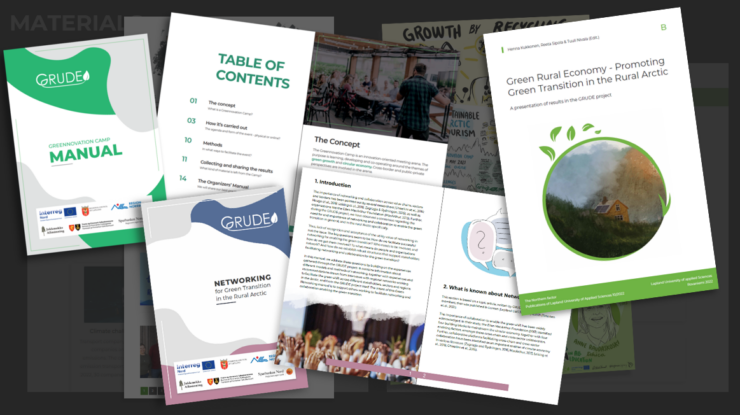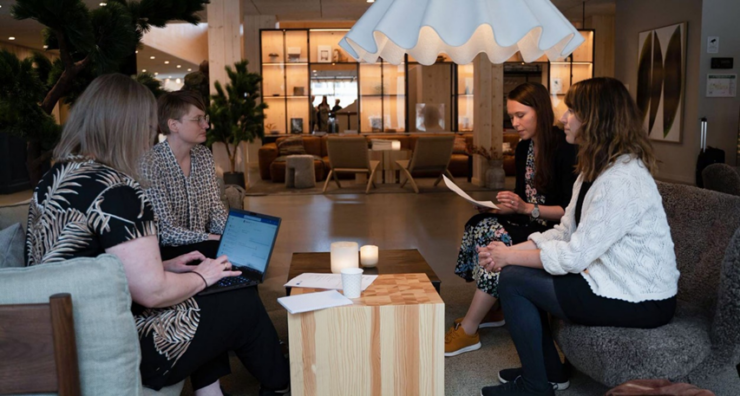Green transition is reality also in the rural Arctic communities. With the right approach, it can bring great benefits in the future. Ensuring the social sustainability and empowering the regions to have an active role in the process are prerequisites for success.
Green economy aims for creating a society that, in addition to economic growth, considers the questions of environmental risks and social sustainability. It works by circular principles, where resources are regenerated to be used again and again. Designing out waste and pollution, keeping products and materials in use, regenerating natural systems, extending product lifetime, encouraging sharing and the use of recyclable materials and sidestreams are examples of green economy and circular approach.
To support this transition, GRUDE project has collected and shared information about green economy and supported networking in the North of Finland, Sweden and Norway during 2019–2022. GRUDE has promoted the goals of green growth in sparsely populated areas by disseminating information about resource efficiency, environmentally responsible practices and circular economy. Additionally, the project has worked to identify current obstacles and bottlenecks that are hindering the realization of green economy in the Nordic regions. The primary target group for GRUDE has been the public sector whose policies affect also the local businesses, as well as the everyday life of the citizens.

In addition to informing the public sector, the project has promoted favourable conditions to green entrepreneurship, as well as sector- and border-crossing cooperation which allows the sharing of green practices and knowledge. The project acted as a middleman in partner search for its stakeholders by arranging events and creating opportunities for networking. Cross-border cooperation has been very valuable in presenting inspiring case-examples, expert keynotes and workshop discussions from similar areas. Green mindset can grow from the experience of enablement and involvement, which requires relatable examples. The project’s networking activities have also greatly benefitted from the border-crossing dimension, even in the online-mode.
The GRUDE project has arranged over 60 events including international, as well as local information sharing campaigns, interactive workshops, study trips and more, most of them as online-events due to COVID. The events have been a great success, engaging over 1200 participants and bringing together researchers, municipal decision-makers, entrepreneurs and local people to share and innovate circular practices. Moreover, the project visited several Municipality Council meetings and shared information through the project webpage, social media channels and by sending email newsletters.
There is still a lot of work to be done. A successful, comprehensive transition to green economy requires cooperation from all sectors of society also in the future, as many of the fundamental operation models and structures must be renewed. This demands actions from decision-makers in municipalities, across the business sector, as well as from the local people. Green transition is a long process where it is important to ensure the involvement of all parties in society.
To support the transition, GRUDE has produced research reports, videos about local sustainable businesses, event recordings, manuals, blog texts etc. You can find all the materials from the project webpage: www.grudeproject.eu.
